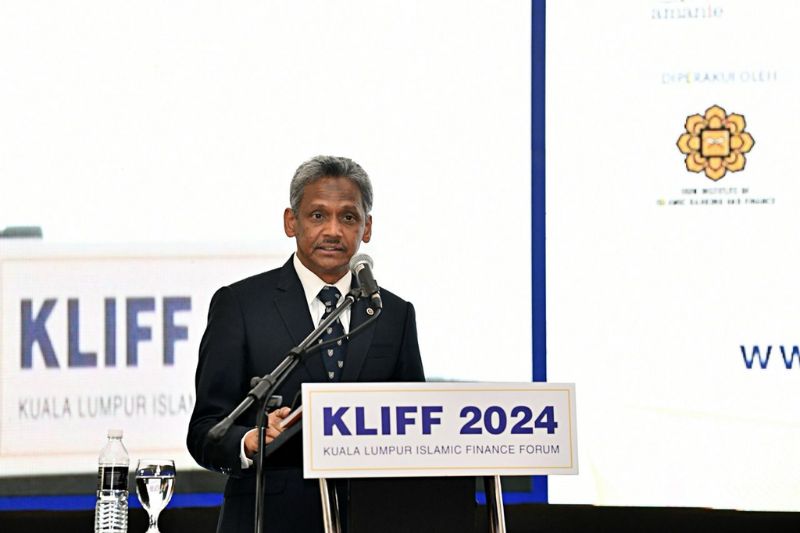Kuala Lumpur, 5 November 2024 – At the 19th Kuala Lumpur Islamic Finance Forum (KLIFF), Governor Abdul Rasheed Ghaffour of Bank Negara Malaysia presented a vision for leveraging Islamic finance as a powerful driver of economic revitalisation. Addressing industry leaders at the Royale Chulan Hotel, he called for the sector to embrace innovation while staying true to its foundational values.
BNM Governor Highlighted Islamic Finance as Key to Economic Growth at KLIFF 2024
Themed ‘Revitalising the Economy via Islamic Finance’, the forum provided a platform to discuss new strategies for sustainable growth. Drawing on historical lessons, Governor Rasheed connected the core principles of Islamic finance—ethical trade and equitable wealth distribution—to the challenges of the modern economy. He quoted Prophet Muhammad, saying, “pay the worker’s wages, before his sweat gets dried,” as a reminder of the timeless importance of fair economic practices.
Shariah-Based Values as Economic Pillars
Governor Rasheed noted the substantial progress of Islamic finance, with global assets surpassing USD4.5 trillion in 2022, more than doubling in a decade. Despite these achievements, he urged stakeholders to focus on greater impact. “We must contribute towards a more sustainable and ethical financial ecosystem by fostering Islamic financial practices that adhere to the principles of fairness, transparency, and inclusivity,” he said.
Malaysia's leadership in this area was highlighted, particularly through the Value-based Intermediation (VBI) framework and the new Maqasid Shariah Scorecard. Governor Rasheed encouraged strong shareholder engagement, stating, “With louder tone from the top, shareholders have the power to drive positive changes across the entire ecosystem.”
Embracing Innovation for Inclusive Growth
Governor Rasheed also stressed the need for innovative solutions to address contemporary economic issues. Initiatives like iTEKAD, blending social finance with conventional funding to support microenterprises, and the soon-to-be-launched Greening Halal Businesses (GHB) were cited as examples of how the industry can adapt to evolving needs. He remarked, “The prospect of technology and digitalisation continues to widen, reflecting significant opportunity for growth,” and pointed to Malaysia’s enhanced Financial Technology Regulatory Sandbox as a vehicle for developing new financial solutions.
The government’s RM100 million matching fund for risk-sharing structures was noted as an opportunity for advancing climate-focused and food security projects, aligning with broader economic resilience efforts.
Expanding Global Collaboration
Governor Rasheed underscored the importance of strengthening international partnerships to unlock the full potential of Islamic finance. Malaysia’s role in promoting regional cooperation, particularly during its upcoming ASEAN Chairmanship, was highlighted as a key strategy for fostering shared prosperity and sustainable development.


